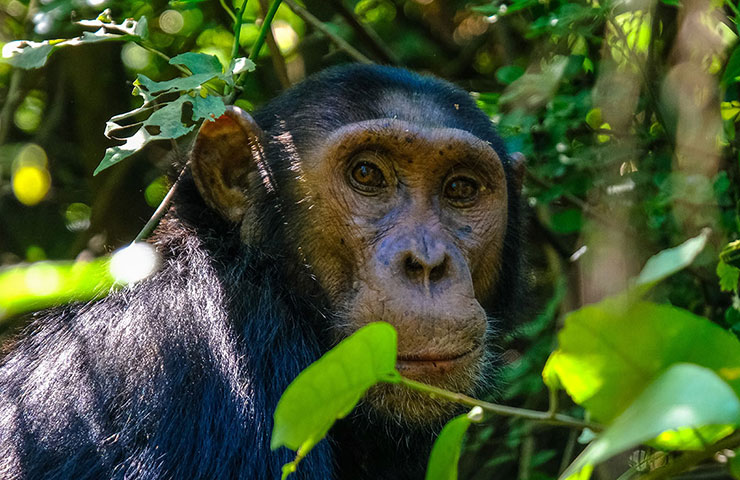What makes Nyungwe Forest unique; nestled in the southwestern part of Rwanda, Nyungwe Forest stands as a testament to the remarkable diversity that our planet harbors. Spread over 1,020 square kilometers, this ancient rainforest is a treasure trove of natural wonders, cultural richness, and unique ecological features that set it apart on the global stage.
One of the most distinctive features of Nyungwe Forest is its incredible biodiversity. It serves as a refuge for an astonishing array of flora and fauna, some of which are found nowhere else on Earth. The forest is home to over 1,000 plant species, including rare orchids and towering mahoganies. The lush green canopy houses a variety of primates, with 13 different species swinging through the trees, including the endangered chimpanzee, which finds sanctuary in this rich and diverse ecosystem.
Avian enthusiasts find Nyungwe Forest a paradise, with over 300 bird species soaring through its verdant expanse. Among them, the Rwenzori Turaco and the elusive Albertine Rift Endemics stand out, making it a must-visit destination for birdwatchers from around the globe. The melodious symphony of chirping birds, rustling leaves, and bubbling streams creates a serene ambiance that resonates with the untouched beauty of nature.
A remarkable feature of Nyungwe Forest is its unique eco-systems. The forest spans altitudes ranging from 1,600 to 2,950 meters above sea level, encompassing montane rainforests, bamboo thickets, and grassy swamps. This diverse topography has resulted in microhabitats that support specialized flora and fauna, contributing to the forest’s exceptional biodiversity. The complex ecological balance within Nyungwe is a delicate dance that has evolved over millions of years, making it a living laboratory for ecological studies.
The cultural significance of Nyungwe Forest is equally captivating. The forest has been home to the Batwa people, one of the oldest indigenous communities in the region, for centuries. The Batwa, also known as the “keepers of the forest,” have a unique symbiotic relationship with Nyungwe. They have crafted their way of life, traditions, and folklore based on their deep connection with the forest. Visitors to Nyungwe have the opportunity to engage with the Batwa, learning about their ancient customs, medicinal plant knowledge, and traditional hunting techniques that have sustained them for generations.
Nyungwe Forest also plays a crucial role in the water systems of the region. Numerous rivers originate from its pristine depths, serving as a source of water for both wildlife and local communities downstream. The forest acts as a natural water reservoir, regulating the flow of rivers and contributing to the overall water security of the surrounding areas. This ecosystem service underscores the interconnectedness of Nyungwe with the broader landscape and its importance for both the natural environment and human societies.
The conservation efforts undertaken in Nyungwe Forest are commendable. Rwanda has recognized the significance of preserving this natural wonder and has established Nyungwe National Park to safeguard its unique ecosystems. The park is not only a haven for biodiversity but also a destination for eco-tourism, offering guided hikes, canopy walks, and primate tracking experiences that allow visitors to immerse themselves in the beauty and mystery of this ancient forest.
In conclusion, Nyungwe Forest stands out as a unique gem in the crown of global biodiversity. Its unparalleled richness in flora and fauna, coupled with its cultural and ecological significance, makes it a destination unlike any other. As we strive to conserve the wonders of our planet, Nyungwe serves as a beacon, reminding us of the intricate tapestry of life that deserves our utmost protection and appreciation.

